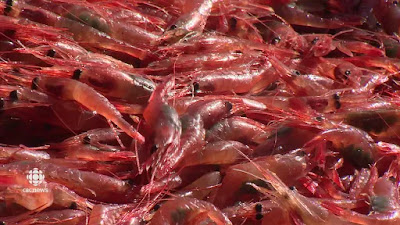More questions regarding FFAW's close ties to controversial crab quota; private company initially billed as 'co-op'
For years, NL’s largest fisheries union, the Fish, Food and Allied Workers, denied connection to a company awarded a crab quota in the mid-1990s, but information released in recent weeks through the Access to Information and Privacy Act reveals close ties. And while Offshore Fish Resource Harvesters initially billed itself to DFO as a co-operative, questions remain as to what happens with the profit. Find Saturday’s (July 2nd) letter to the editor of The Telegram here.
TIMELINE
June 12, 1995, Ches Cribb — vice-president of the FFAW’s Deep Sea Sector — wrote a letter to Jim Baird with the licensing division of the federal Department of Fisheries and Oceans (DFO) in St. John’s.
“I am requesting that DFO give priority access to the developing offshore crab and scallops fishery to deep sea fisherman who have historically fished in that are,” Cribb wrote in the letter, obtained this past June through the federal Access to Information and Privacy Act.
“These men could fish as a co-operative. I understand the DFO policy of licensing enterprises, however, I was told that DFO have granted allocations to associations in other Atlantic jurisdictions who don’t have licensed enterprises.”
June 22, 1995, Baird denied the request, but left the door open for future possibilty.
“Your request will be given consideration in the context of the ongoing licencing policy review, which will define access to the fishery in the future,” Baird wrote in a June 22nd, 1995 return letter.
Feb. 27th, 1996, Cribb wrote to then-DFO Minister, the late Fred Mifflin, with a proposal by Offshore Fish Resource Harvesters for access to the snow crab fishery outside 200 miles.
Cribb wrote the letter — not as vice-president of the FFAW’s Deep Sea Sector — but as president of Offshore Fish Resource Harvesters.
The letter outlined how the entity was “incorporated under the Companies Act,” but “based on co-operative principles (one person, one vote).”
Cribb wrote that the company represented deep sea fishermen — pointing out how 1,200 worked on offshore vessels prior to 1992 (year of the northern cod moratorium), but only 70 were “actively working.”
“For years they fished flatfish on the Nose and Tail of the Grand Banks, the same grounds which now boast an abundance of snow crab,” Cribb wrote.
“These fishermen developed the offshore fishery and supplied fish to plants in communities such as Grand Bank, Fortune, Marystown and Catalina.”
“We believe it is important that your government recognizes the historical attachment of these fishermen to the offshore and grant access to this developing fishery outside the 200 miles to the men who traditionally fished in this area.”
Under the heading, Conclusion, Cribb wrote: “For the past two years, the offshore fishermen of Newfoundland have made representation to the Department of Fisheries and Oceans for licences to fish non-traditional species in their established fishing areas. This proposal is the culmination of extensive discussions which focused on the opportunity for offshore fishermen to diversify into the snow crab fishery outside the 200-mile limit.”
March 26, 1996, Mifflin writes back to Cribb acknowledging receipt of his letter.
May 28th, 1996, Cribb writes a fax to DFO informing them that Offshore Fisheries Resource Harvesting Inc. (there’s been a change in the company’s name) had made arrangements for two FPI trawlers to temporarily fish the crab quota it had applied for. Crib’s letter is faxed with an FFAW cover letter, and the address for Offshore Fisheries Resource Harvesting Inc. is the same as the FFAW’s office in Marystown.
June 6, 1996, Offshore Fisheries Resource Harvesting Inc. is issued a 375-tonne exploratory crab licence outside 200 miles. Again, the company’s address is listed as the same address as the FFAW’s Marystown office.
Aug. 25, 1997, Offshore Fisheries Resource Harvesting Inc. issued a 500-tonne exploratory crab licence outside 200 miles. Company address again listed as FFAW’s Marystown office.
•••
“Our union does not own a shrimp boat, a crab boat, a shrimp quota, or a crab quota, nor do we have shares in any of the above, nor do we own in whole or in part any organization that has such assets.”
— Earle McCurdy in a March 2008 letter to the editor of The Independent newspaper.
“Up to this day we have 25 people employed, fishermen that were ousted by the moratorium and those that weren’t. Those that are working and have training needs and things like that and if they need funding for certification we’ll help them out.”
— Ches Cribb in a 2004 interview with The Independent.





Comments